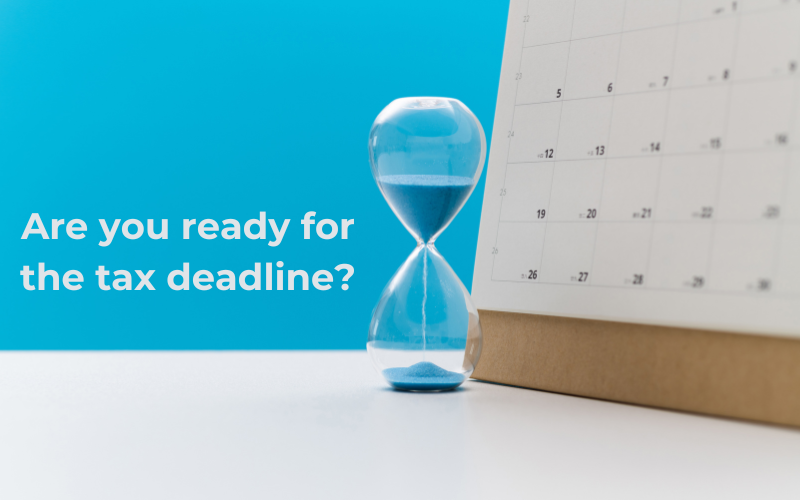
Getting Organised Ahead of the Tax Return Deadline
Accredited Supplier, Sones Accountancy Services, provides tips on how to prepare for the self-assessment tax deadline.
The self-assessment tax return deadline is looming! You must get organised ahead of the deadline to make the filing process as smooth and stress-free as possible. Do not bury your head in the sand, start preparing now!
Follow our tips below to make this year’s tax season a breeze:
Organise your documents
Create a checklist and make a list of all the information you need to include in your tax return. Collect all relevant financial documents, including your bank statements, income records and expense receipts. Have to hand your National Insurance number and 10-digit personal Unique Taxpayer Reference (UTR). As you gather the documents, check them off the list. Being organised will make the process much smoother.
Understand deadlines
The self-assessment tax return deadline in the UK is 31 January. Put this date in your calendar, set an alert on your phone, or do whatever you need to, so you do not forget! Filling out a tax return can be time-consuming for some, so it is important to set aside dedicated time to work on it. This will help you avoid rushing and making mistakes.
Use accounting software
The days of entering figures into spreadsheets are long gone! There are many online accounting tools and resources available these days which can synchronise with your bank so money coming in and going out is easily tracked, invoices and quotes can be created, and reports can be generated so you can see how your business is performing. So, when the self-assessment deadline comes around, your financial information can be sourced at the click of a button. This will help streamline the process and keep your financial records organised.
Record all income
Ensure you have accounted for all sources of income, including employment, self-employment, and any additional earnings.
Claim eligible expenses
Identify and claim all eligible expenses to minimise your tax liability. This includes business-related costs and allowable deductions.
Review tax allowances
Familiarise yourself with allowable tax reliefs or deductions you may be eligible for, such as charitable donations or business expenses. These can help reduce your tax liability.
Update personal information
Check that your personal details with HMRC are up-to-date, including your address, contact information, and any changes in your circumstances.
Keep accurate records
Maintaining a clear record of all financial transactions throughout the tax year will simplify the reporting process and make it much smoother.
Seek professional advice
If you are unsure about any aspect of your tax return or have a complex tax situation, it may be beneficial to seek the help of a professional accountant. They can ensure that your tax return is accurate and help you maximise any deductions or credits.
Plan for payments
If you anticipate owing tax, plan ahead for the payment to avoid last-minute issues. HMRC provides options for setting up payment plans if needed.
Completing a self-assessment tax return does not have to be a stressful time. The key is to take a proactive approach and stay organised. This will ensure the process is more manageable and will reduce the likelihood of errors. If you stay on top of your financial records throughout the year and can access the information easily, you’ll be doing yourself a massive favour! Thinking about your tax position should not be something you do only in January!
